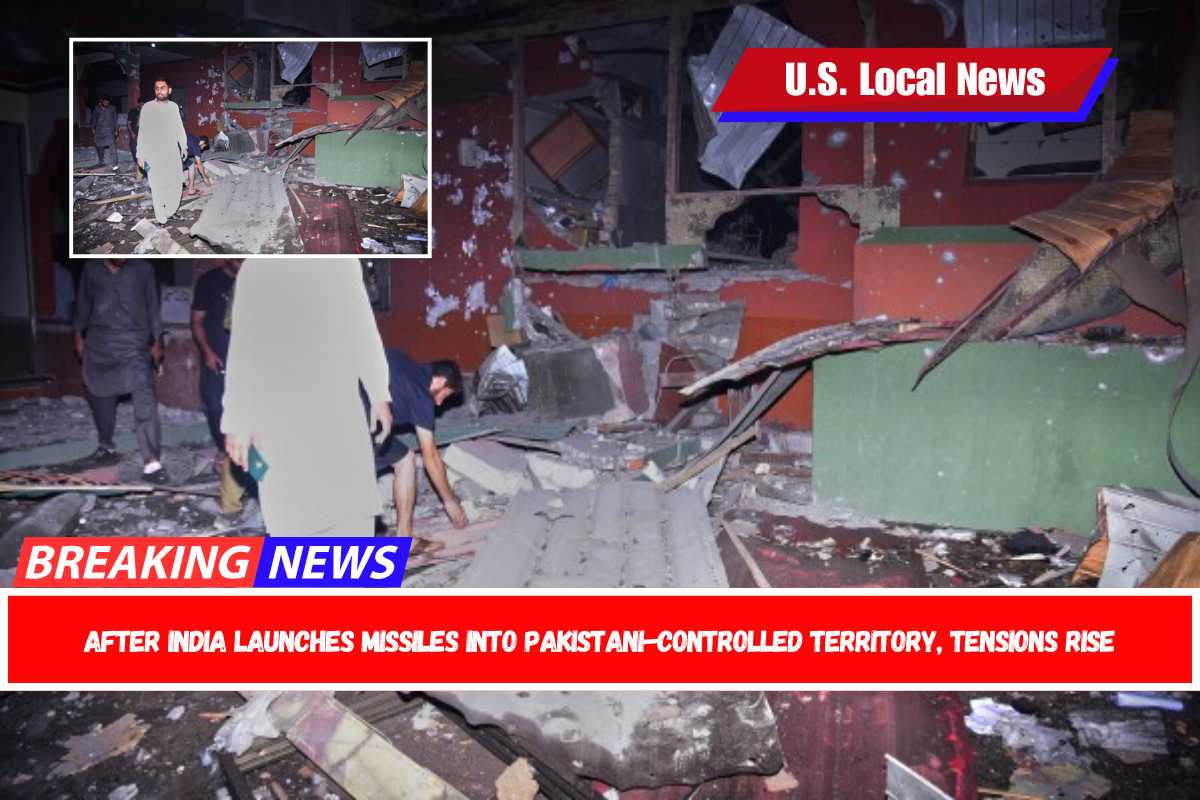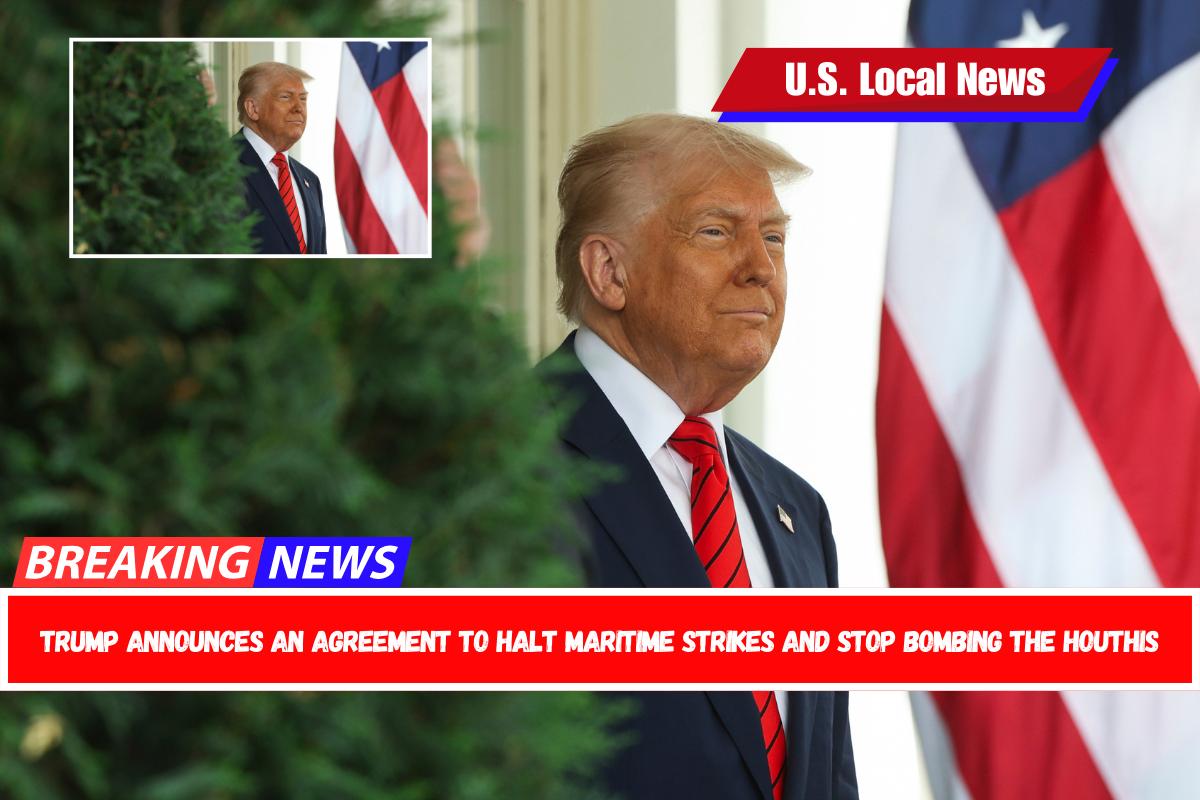ISLAMABAD – India launched missiles into Pakistani-controlled territory in several locations early Wednesday, killing at least 19 people, including a child, in what Pakistan’s leader described as an act of war.
India claimed it struck infrastructure used by militants linked to last month’s tourist massacre in the Indian-controlled part of Kashmir.
Pakistani shelling killed at least three civilians in Indian-controlled Kashmir, according to an Indian army statement.
Tensions between the nuclear-armed neighbors have risen since the attack, which India accuses Pakistan of supporting. Islamabad has denied the accusations.
Pakistan’s Prime Minister, Shehbaz Sharif, condemned Wednesday’s airstrikes, saying the “deceitful enemy has carried out cowardly attacks” and that his country would respond.
‘ “Pakistan has every right to give a robust response to this act of war imposed by India, and a strong response is indeed being given,” Sharif told the media.
Sharif called a meeting of the National Security Committee for Wednesday morning.
South Asia analyst Michael Kugelman said it was one of India’s most intense strikes on its rival in years, and Pakistan’s response would “surely pack a punch as well.”
“These are two strong militaries that, even with nuclear weapons as a deterrent, are not afraid to deploy sizeable levels of conventional military force against each other,” Kugelman told CNN. “The escalation risks are real. And they could certainly grow, and quickly.”
The United Nations spokesperson, Stephane Dujarric, said in a statement late Tuesday that Secretary-General Antonio Guterres has called for maximum military restraint from both countries.
“The world cannot afford a military confrontation between India and Pakistan,” according to the statement.
Indian leaders from various political parties applauded the strikes. Rajnath Singh, India’s defense minister, wrote, “Victory to Mother India,” on X.
India’s main opposition Congress party appealed for national unity and stated that it is “extremely proud” of the country’s army. “We applaud their resolute resolve and courage,” said Congress party president Mallikarjun Kharge.
According to India’s army, the operation was termed “Sindoor,” a Hindi word for the brilliant red vermillion powder used by married Hindu women on their foreheads and hair, in allusion to the ladies who witnessed their husbands being slaughtered in front of them.
Lt. Gen. Ahmed Sharif, Pakistan’s military spokesperson, said that the missiles struck six areas in Pakistan-administered Kashmir and the country’s eastern Punjab region.
Officials said at least 19 individuals were killed and 38 injured.
According to India’s Defence Ministry, the strikes targeted at least nine places “where terrorist attacks against India have been planned.”
“Our activities have been deliberate, measured, and non-escalatory. “No Pakistani military facilities have been targeted,” the statement stated, adding that “India has shown significant restraint.”
Pakistani officials claimed the strikes targeted at least two installations previously linked to proscribed terrorist groups.
One hit the Subhan Mosque in Bahawalpur, Punjab, killing 13 people, including a toddler, according to Zohaib Ahmed, a doctor at a neighboring hospital.
The mosque is near to a seminary that was originally the headquarters of Jaish-e-Mohammed, a militant group that was disbanded in 2002. Officials claim the group has had no operational presence at the site since the prohibition.
Muhammad Sabir, who lives nearby, claimed he heard three or four explosions before running to a neighboring field with his family and lying down.
Another rocket struck a mosque in Muridke, injuring its structure. Lashkar-e-Taiba was headquartered in a big structure nearby until 2013, when Pakistan banned the group and arrested its founder.
The incident in Kashmir was claimed by a hitherto unknown group known as Kashmir Resistance.
In Muzaffarabad, the biggest city in Pakistan-controlled Kashmir, resident Abdul Sammad said he heard numerous explosions as the blast ripped through houses and saw people fleeing in terror. Authorities promptly turned off power to the neighborhood.
Locals then surveyed the damage to their homes caused by the missile attacks, which included rubble and other debris crunching underfoot.
People sought sanctuary on the streets and in open spaces, frightened of what might occur. “We were afraid the next missile would hit our house,” Mohammad Ashraf explained.
Authorities in Pakistan-controlled Kashmir have declared an emergency at the area’s hospitals.
Pakistan closed schools in Kashmir and Punjab provinces following the missile strikes. It had previously closed seminaries in Kashmir in anticipation of an invasion by India.
Heavy gunfire erupted along the Line of Control, which separates India and Pakistan’s disputed region of Kashmir.
The Indian army reported that three civilians were killed when Pakistani troops “resorted to arbitrary firing,” including gunfire and artillery bombardment, across the Line of Control, the de facto boundary that separates disputed Kashmir between the two countries, and its international border. It stated that it was “responding in a proportionate manner.”
Shortly after India’s strikes, aircraft crashed into two villages in India-controlled Kashmir.
State-run According to Pakistan Television, security officials stated that the country’s air force shot down five Indian jets in retaliation, but provided no further information. There was no immediate response from India to Pakistan’s claim. According to Pakistan’s Foreign Affairs Ministry, Indian forces launched the strikes from Indian airspace.
According to Srinagar police and neighbors, jet debris was dispersed around a village on the fringes of the region’s main city, including a school and mosque compound.
“There was a large fire in the sky. Then we heard numerous blasts,” claimed Mohammed Yousuf Dar, a resident of southern Wuyan village in the Pampore district, where the incident occurred.
Firefighters fought for hours to put out the blaze.
Shortly after the strikes, another aircraft crashed in an open field in the village of Bhardha Kalan near southern Akhnoor, close to the Line of Control in Indian-controlled Kashmir.
Sachin Kumar, a village resident, told The Associated Press that he heard loud explosions, followed by a gigantic ball of fire.
Kumar said he and several other people went to the spot and discovered two injured pilots. Both were later apprehended by the Indian army.
Pakistan claimed India’s strikes presented a serious threat to commercial air traffic. “This reckless escalation has brought the two nuclear-armed states closer to a major conflict,” according to a statement.
Meanwhile, authorities in Indian-controlled Kashmir closed Srinagar city’s airport to civilian planes on orders from the Indian air force, according to senior airport official Javed Anjum.
Officials in Indian-controlled Kashmir also closed all schools and other educational institutions in at least seven border areas, as well as the area surrounding Srinagar International Airport.
The Indian Embassy in Washington claimed in a statement that national security advisor Ajit Doval met with US National Security Advisor and Secretary of State Marco Rubio following the strikes. The embassy stated that “India has credible leads, technical inputs, and testimony of survivors” that indicate to “the clear involvement of Pakistan-based terrorists in the attack.”
Indian sources said the armed forces employed precision strike weapon systems to carry out the operations, which targeted the headquarters of extremist groups Jaish-e-Mohammed in Bahawalpur and Lashkar-e-Taiba in Muridke.
Following India’s attack into Pakistan on Wednesday morning, China urged both parties to exercise caution.
“China has expressed regret over India’s military activities this morning and is concerned about the current situation. “China opposes all forms of terrorism,” a spokeswoman for the Ministry of Foreign Affairs stated.
“We call on both India and Pakistan to prioritize peace and stability, remain calm and restrained, and avoid taking actions that further complicate the situation.”
Beijing is Pakistan’s greatest investor by far, with a $65 billion China-Pakistan Economic Corridor project across the country. Meanwhile, China has various boundary claims with India, one of which is in the northeastern area of Kashmir.










